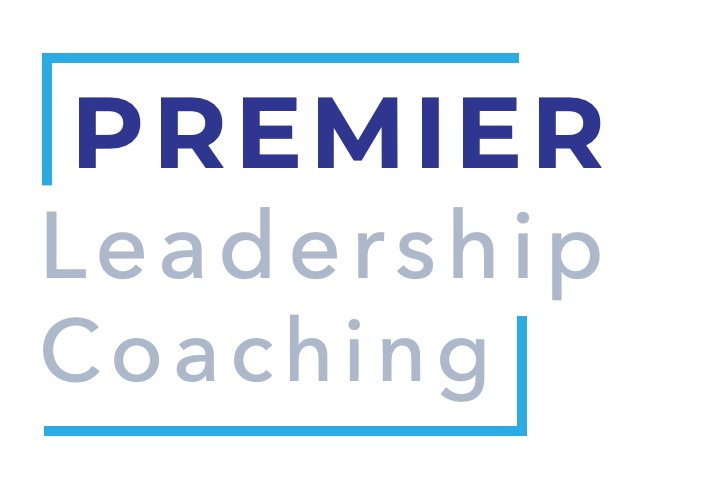
ACCORDING TO ALEXA
Otis the Tractor: A Parable on What Start-ups Need

An old friend reached out recently. He’s in-house counsel for a startup, he needed local outside counsel, maybe I knew someone. I was happy to help and of course, I do know a good lawyer.
In passing, I mentioned, that I also work with startup founders. I told him how we have this great program. We help founders stop bad behaviors, adopt more impactful behaviors, eliminate talent drain, generate more buy-in from employees, and get better outcomes. He was very polite. And very apathetic. “Interesting,” he said.
My friend’s reaction was familiar. He is not alone. The world wants lawyers. Lawyers are something this world understands. A program that helps people be their best selves and grow into actual leaders is more complicated, it requires thought and questions. It creates cognitive dissonance of sorts. It forces one to look at oneself and confront demons. It is uncomfortable, requires deep work, and for many is better left ignored. It is easier and certainly in the short-term faster to be just another startup with a “we are going to run this like a bull in a China shop, bodies are replaceable, what we need is more funding and time” mentality.
The whole thing is so classic it is an actual bedtime story. Specifically, it reminded me of Loren Long’s children’s book Otis. If you haven’t read Otis, you should it. It is a good one.
Here are the nuts and bolts. Otis is a tractor that is deemed obsolete, replaced by a better, bigger, shinier yellow tractor, and forgotten on the farm. However, when there is a life-threatening crisis that the farmhands can’t help with, the new yellow tractor can’t help with, and the fire department can’t help, it is Otis that comes out with a Putt Puff Puttedy Chuff and saves the day. Otis’s impact is then so public and undeniable that everyone finally sees that Otis is not irrelevant, but critical and that having him around makes the farm run better overall – Otis’s empathy and emotional intelligence, support and leadership, and presence lead to all sorts of improvements and efficiencies that are out of reach for the conventional tools and fancy technology.
It should be noted that although it’s not in the book, I am sure the farm had outside counsel too. And three cheers for the farm because there is nothing like a good lawyer. Nonetheless, here is the reality – all great organizations need great lawyers, but lawyers alone aren’t going to save the farm. 90% of all startups fail and the vast majority had lawyers (and probably people
in marketing, technical recruiting, ideation, sales, and likely a CTO). What I wonder is how many had an Otis with its harder-to-quantify, difficult-to-understand, yet infinitely powerful Putt Puff Puttedy Chuff.
The Questions Determine the Answers

Like many others, I love the video of Giannis Antetokounmpo answering the reporter’s question about failure. At that moment he is both Ares and Hera. He exhibits something akin to what is known in Buddhism as bodhicitta. His wisdom has made the rounds – there is something about it that we respond to. Most of the enthusiasm seems to be around Antetokounmpo’s two cents on failure, but that’s not why I liked the video. The part that stuck with me is when he said, “It’s a wrong question.”
The idea that good answers are only possible if there are first good questions is fundamental to coaching. At Columbia, it was made clear that the quality of a client’s answer is wholly dependent on the quality of the coach’s question. As a mom, I am reminded of this every day. It took a while but by my fourth kid, I stopped asking questions like, “What is your favorite color?” And started asking things like, “What makes you happy about blue?”
I am with the Greek Freak. So often the question asked is a wrong question– our questions are frequently what my 16-year-old would call “basic.” The way we ask questions does not have a monopoly on being milquetoast. Where we look for wisdom is also misguided. Wrong questions give wrong answers and wrong sources do, too.
For instance, most of the internet is a wisdom wasteland. Think Mad Max – Fury Road, but instead of water there is societal breakdown, murder, and revenge due to a shortage of anything resembling insight. And it would be in everyone’s best interest to not get me started on Amazon’s Top 10 business books. All I can say on that is, “Even a stopped clock is right twice a day.” I get the appeal. I am not immune to it. We often respond to that brand of advice (quick fixes, how-to guides, do what I did maps), because it often not only permits us to ignore the whispers from our better angels, but it is accessible, and it creates the illusion of quick impact and short-term results to which we have a total addiction. The immediate gratification and ease of the web make it an irresistible Siren.
But if what we want are truly good answers, particularly when it comes to life’s most complicated problems such as leading people, engaging in conflict, making hard choices, or having a challenging conversation, we must seek out quality sources. And here is the thing – good sources abound.
Nuanced source material surrounds us right here in our everyday lives. What is right and true is at our fingertips and usually can be found in one of eight places: fiction writing, song lyrics, animals, sports, military officers, religion, nature, or children. Just today, I told a group of founders that the most valuable lessons I have ever learned about leadership, everything I know about teams, all the effective communication strategies in my toolkit – the very stuff I share with the CEOs and founders I am hired to work with was first introduced to me by my kids.It is from my vantage point as a mom that I have learned the most about how to become an exceptional business, and how to achieve success. I can’t explain it, but it is for sure true.
To be clear, I am not saying all that is found in these places is true; rather my point is just that if you want to find real wisdom, insight, or truth, these are pretty good hiding spots. And while there is little speed or spoon-feeding in, let’s say, nature, and that is off-putting to us modern humans, the payoff is also great. It bears remembering that the tastiest morsels are usually in hard-to-reach places.
The Story We Tell Ourselves

But there was this sky. He was right about that. It was the type of sky that you only get in Florida. It’s something about being at the end of a peninsula. My friend Jill said once, “There are lots of things wrong with Florida, but the sky isn’t one of them.” Amen Jill.
This sky had a personality split three ways. Due east, down at the end, there was this pinkish gray – the love child of a dove and cotton candy. And the center part was all blue. Nothing spectacular. An interlude of sorts. A palate cleanser. Wide open, unobstructed, revealing the arc of the globe and sort of remarkable for that. But the part right above us – the top of the world bit – was a field of cotton ball cloud highlighted by brilliant sun so that the tips of the clouds glowed – like gold. Or maybe as if the door to the Kingdom of Heaven had been cracked open just wide enough for all the glory to slip through for a moment for all of us mortals to drool over.
There was the billboard to the left advertising the sex shop up the road. And the car blasting bass music so loud it hurt my ear drums. But the kid didn’t register any of that because he is seven, all that other stuff is just a waste of time anyhow and he knows better. It was all top of the world for him. Just the gold and the glow and the miracle bits existed for that boy.
And it reminded me that it’s all just a story we tell ourselves. And that the day we have, the people we know, the work we get, the feedback, the success, basically life as we know it is up to us much of the time, and basically the whole of reality is dependent on us and what we decide about it. The same morning can be a horrible, miserable commute or the day you got to bear witness to the top of the world.
The author G.K. Chesterton wrote, “The world will never starve for want of wonders; but only for want of wonder.” Chesterton too knew that the whole thing was just a choice. He understood that the challenge wasn’t external, that there is no deficit of wondrous things, but rather internal, a problem of ability. He saw that it was not a noun problem, but a verb problem. Wondering about something is a decision, big and important but a decision, nonetheless. We do this deciding, multiple times a day in fact, and given that the outcome of the decision is winner take all, good day vs bad day, valuable employee vs waste of resources, satisfying life vs something missing, we must do it wisely. It really is a shame for us to starve when with a simple shift in mindset we can be stuffed to the brim with “top of the world.”
Ego: Friend and Foe

As a founder, or any other leader, or even just a human your ego * is your “good news, bad news.” The good news is that your ego is your best friend, biggest cheerleader, and president of your fan club. It is the thing in your head that says, “you can do it, you are the best, you’ve got this.” It is the most articulate of positive self-talk.
For founders, specifically, it is the force that encouraged us to go out on a limb and pursue our business brainchild despite high risk and no guarantee of success or reward. Going after big, brave, ambitious things would be impossible without the ego and in this way the ego serves us. Thank you, ego.
The bad news is that your ego (probably with the best of intentions – to protect you and keep you safe) gets you into all sorts of skirmishes – mostly with other egos. It is the ego at the wheel when we say / feel things like “I was disrespected, she offended me, can you believe how this person talked to me” and the like. That storyline is a byproduct of a scared little ego in a huff. And, in this way, the ego opposes us.
For founders, and most everyone else, this ego is a saboteur, a time suck, a resource waster, a talent loser – it is our Achilles’ heel and puts us in impossible situations. In this way, the ego stymies us. Thankfully, when the ego takes this tack, it gives itself away with negative “me, me, me” self-talk, nasty emails, short tempers, drama, and triangulation and thus can easily be avoided. As leaders, when that ego shows up, we should say, “No thanks. Not today.”
*When I talk about ego here, I don’t mean it in the traditional way that ego is used. This is not ego as in “he has a big ego” which translates as he is arrogant type of thing. Here I use ego as a synonym of “me.” Ego is the voice inside your head, it is the thing at play when you say ‘I.” It is self.

According to Alexa
Amazing Begins Where Comfortable Ends
I recently found myself in Raleigh. Well, that’s what it felt like anyhow. I swear I looked up and said, “WOW I am in Raleigh.” I called home and told my husband, “I am not sure how I got here.” Well, of course I knew how I got there. I bought tickets, I boarded a plane, I checked myself into the hotel. I willingly planned a trip to North Carolina. But I went for reasons that didn’t exist once I arrived and it was very disorienting.
I had made this gross miscalculation and ended up somewhere I didn’t need to be. I wasn’t happy about it. I may have even Googled flights home. I was uncomfortable – away from home, separated from Charlie and half of my kids, in a city that was unfamiliar to me with no good reason for being there and nothing clear to do with my time.
I wanted to go home. I was in real pain. I wanted to escape from my Holiday Inn hotel room and the view of endless gray unfolding outside my window. I longed for familiar comfortable surroundings and for South Florida wide-open blue sky. And then it hit me. “Sit tight, Alexa. Something cool is about to happen. A truth is going to be revealed.”
And all of that ended up being true. I went to Raleigh for one reason and ended up being there for another. I got to see who I was when I was out of my element, I understood things about myself that just weren’t possible going through my day-to-day at home – how much more confident I am in cities that I know, how much more complete I feel with my husband by my side, how I prefer the noise of my kids to the loneliness of my own thoughts, and how my mood depends on the light in the sky. Finally, I could see that I just don’t have my act together in the way I like to believe.
And it was a blessing to appreciate these truths. A blessing that is only bestowed when we are unsteady. These cracks and ugly places are only exposed when we are thrown off. I can see how that may not be appealing. Who wants to be cracked and ugly? But the problem is that when we stay pretty and composed and together and strong and safe, we don’t grow a bit. The result is that you get to live the rest of your life just as you are in this exact moment. Or maybe it’s more honest to say: you get to live the rest of your life limited to just as you are in this exact moment.
The growth only happens when the ground is shaky. So, the next time you find yourself asking, “What the heck am I doing in Raleigh?” don’t resist, don’t try to control it, let go of your footing. Lean into the experience, let it knock you off your feet because that it is when something important happens.

According to Alexa
Find Comfort in the Dark Places
One of my Founders came to me this week looking to expand upon how he had supported an employee who was struggling with low morale. Primarily, I was so proud of my Founder. He had done so many things right: (1) picking up on the fact that his colleague was feeling discouraged, (2) caring that his colleague was feeling discouraged, (3) doing his best to support his colleague, and (4) coming to me to see if his approach could be improved upon.
Nonetheless, despite his best efforts, he had gotten the whole support thing wrong. I don’t say this with judgment or superiority or anything other than real love and compassion. The mistake my Founder made is one I have made a million times, it is super common, odds are you do it too. We are just humans after all. We do our silly, sloppy, misguided human things.
By now, you are surely thinking “Get to it Alexa.” So, I will. What did my Founder do? Well, he tried to talk his colleague out of his funk. You know, help him shake off that bad mood. My Founder did what we all so often do when someone comes to us with a problem, he gave a pep talk, said look on the bright side, get some perspective, and appreciate what you have. On one hand, it is totally appropriate. It isn’t mean, or uncaring, or unreasonable. But the problem is, as all of us who have ever felt what my cousin calls “growly” know, that stuff doesn’t work.
When we are having a rough go of it, we simply can’t be talked out of that. We feel what we feel, if we could feel differently, we would, but sometimes life just feels rotten. Feeling that way is not what we want, but it is what we get. Now this isn’t to say we just let those we care for suffer in their misery. There is still something we can do for others. Dark places suck, but they suck a lot less when you are not alone in them. No, we can’t talk people out of their feelings or convince them of something other than their lived truth. But what we can do is say, “you are not alone, I am here, talk to me, I won’t let you go.”
Someone did as much for me this week. I was blue for a million reasons and for none at all. And I lost it a little. It all bubbled up and spilled over. It was a real ugly cry. And my person just sat there, held on to me when it happened, and once it was over, I went on my way. She didn’t say much while I was unraveling and yet somehow when it was all over, I was okay again. And I am honored to say I did the same for someone very dear to me this week. He lost it. There was crying and pain. It went on for a while. I did a fair amount of saying his name and telling him I know. And eventually the soul-sucking hurt stopped. And lo and behold, all was okay. The earth hadn’t swallowed us up. We were still standing. His abyss turned out not to be permanent and my visit there left me unscathed.
But the thing is, we don’t like the dark places. We will do anything to avoid them. They feel lousy, we are scared. Heck, we don’t even like being with other people in their own dark places, dark places that have nothing to do with us, because even that, even seeing the sadness of others scares us half to death. So, we talk folks out of those moods because the sooner our people leave those places, the sooner we can get out of there too.
But none of that helps them. It doesn’t help us either. We must build our tolerance for the low times because they are a rich part of life too. We need to build that muscle for others and maybe mostly for ourselves. If you can’t stand the dark places, you aren’t really living. You are limited and closed off. We need a full spectrum of emotion to be fully human.
So, while nontraditional, here is my “see you later 2021” wish for you: Have courage. Sit with other people in their dark places. Know that in those moments your company is enough. Believe that waiting it out is the only real help you can give to those you care about. Trust that letting the darkness wash over you is what you need as well.
